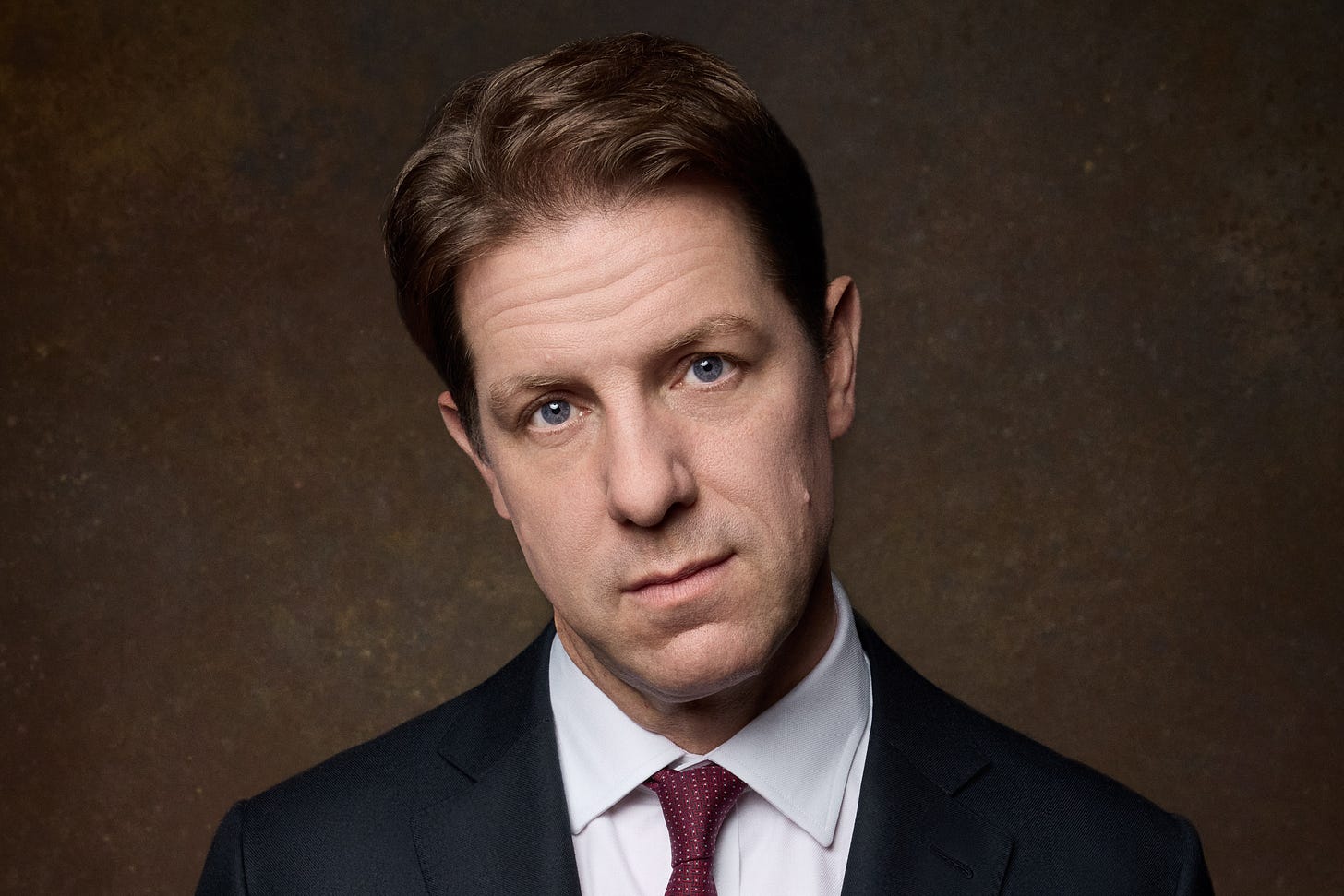Fraser Nelson is a stalwart of conservative political commentary in the UK. Between 2009 and 2024, he was editor of the Spectator and in 2023, he was named by The New Statesman as one of “the most powerful [people] in right-wing British politics.” Today, he works as a columnist and board director of the Centre Of Policy Studies think tank.
So why did we invite him on?
Last December, Channel 4 Dispatches released their latest documentary ‘Inside Britain’s £48 Billion Benefits Scandal’. Led by Fraser, the piece exposed how bureaucracy, fraud, and figure tricks had corrupted a once-noble system. When we saw it, we knew he would make a brilliant guest on the show. The programme was thorough, but we wanted more. And that’s what we got.
What did we learn?
”This isn’t merely an economic scandal - it’s more of a moral scandal.”
Instinctively, many will recoil at the thought of demonising those who use the benefits system. In the not-too-distant past, cruel and unsympathetic tabloids ‘documentarians’ would ‘expose’ scroungers seemingly taking the taxpayer for a ride. In reality, it was what would later be called “poverty porn” - closer to Jeremy Kyle than true investigative journalism.
That’s where Fraser is different. “It’s important”, he says at the top of our interview, “to understand who’s the blame. The problem is not [the people] claiming - the problem is the system.”
So what’s wrong with it? As Fraser explains, in its current form, the system offers “every incentive to sign on to sickness benefit, and very little incentive to go and find a job, or even say you’re a job seeker. People are going to play the hand that’s dealt. If the government says, “Here’s work, it’s minimum wage, it’s pretty tough, if you’re on sickness benefit, you get more money and you never get checked on again”, is it any surprise anyone is taking the second option?”
We talk about incentives often on our show. After all, they’re the ultimate predictor of human behaviour; create the incentives, and watch people fall in line. Under the current regime, those struggling are not encouraged to look for work, strive for independence, or turn their lives around - instead, they are encouraged to learn helplessness. In some sense, they’re victims.
”It breaks my heart to talk to these people.” Fraser shares stories that illustrate exactly how backwards the system is. An interviewee who had been on sickness benefits for many years decided to take action, to pursue training as a plasterer. When the benefits office told him that doing so would cost him his benefits, he dropped out of the course. Why do they make the road to work so hazardous? Shouldn’t it be easier to try than to give up?
”When we create a subeconomy like that, we disconnect people from society. It’s the sort of thing that the left should be angry about - how is this progressive?”




